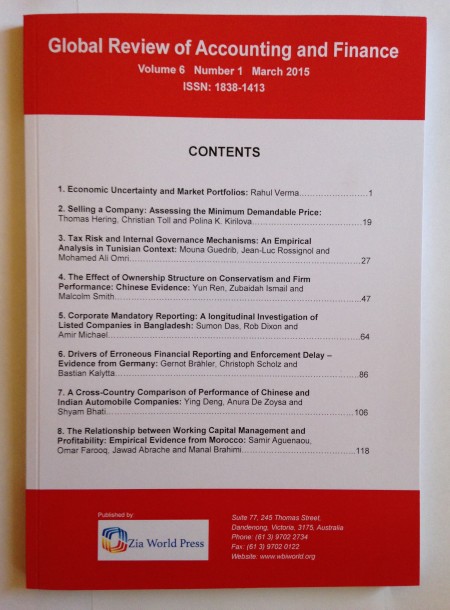The Determinant of Foreign Direct Investments, Evidence from Bangladesh

Global Review of Accounting and Finance
Vol. 6. No. 2. , September 2015, Pages: 82 – 97The Determinant of Foreign Direct Investments, Evidence from Bangladesh
This paper analyses the determinants and the relationship between foreign direct investment (FDI) and economic growth of Bangladesh. The study uses the time series regression model over the period from 2004 to 2013 to test the hypotheses. The study employs an OLS method for the analysis, and to determine the macroeconomic variables that influence FDI inflow in Bangladesh for the sample period. We find evidence that inbound FDI is positively correlated with the gross capital formation, imports of goods and political stability. This finding suggests that FDI inflow is directly related to the political stability of Bangladesh and, gross capital formation and imports increases during the stable political situation. Further, we also find evidence that corruption rate, good governance and unemployment rate are negatively correlated with the inbound FDI. This finding provides evidence that higher corruption rate and the unemployment rate are bad for the macroeconomic development and provide a negative signal to foreign investors. Our research is aligned with the previous research finding. Our research findings have implications for the government of Bangladesh to stabilize the political situation and standardize the inflation rate so that the FDI inflows enhance and influence the economic growth.Key Words: FDI, Emerging Economics, Unemployment Rate, Fixed Capital Formation,
JEL Codes: G11, G14, G15
